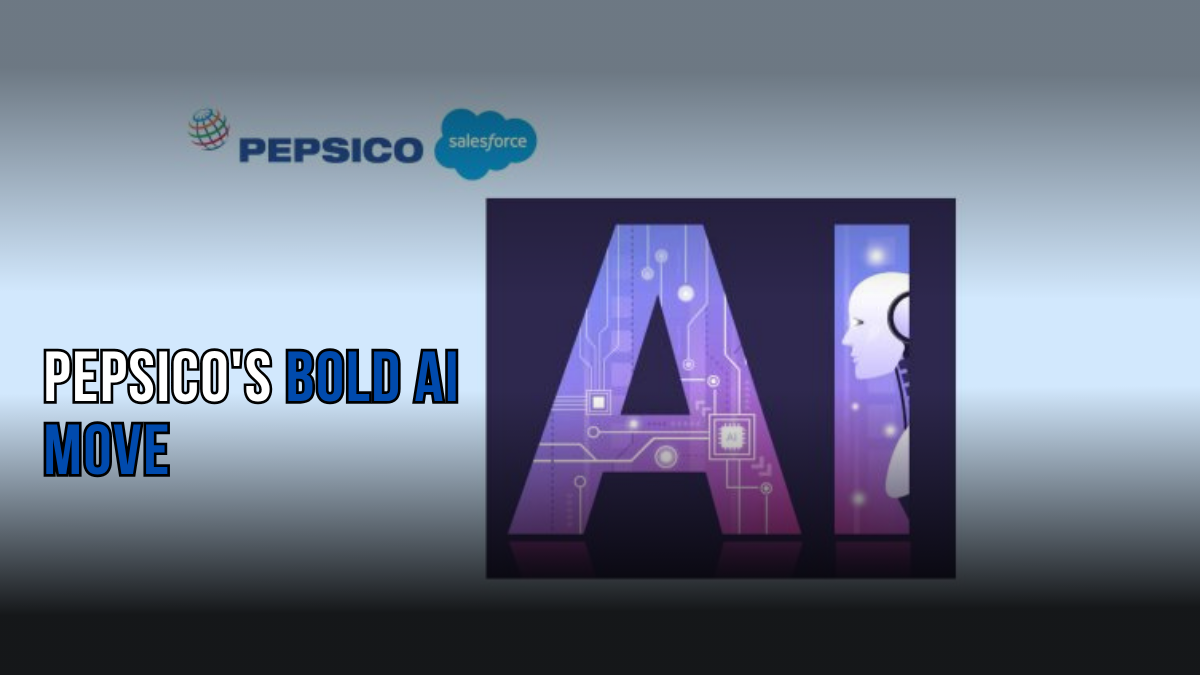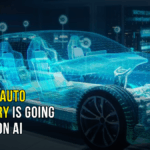The food and beverage industry is experiencing a seismic shift. PepsiCo’s recent announcement to deploy Salesforce’s Agentforce platform marks a pivotal moment in how global brands are embracing artificial intelligence to transform their operations. This strategic partnership positions PepsiCo as one of the first major food and beverage companies to implement AI agents at scale, setting a new standard for the industry.

The Partnership That’s Reshaping Business Operations
PepsiCo’s collaboration with Salesforce represents more than just a technology upgrade, it’s a comprehensive reimagining of how work gets done. The deployment of Agentforce, Salesforce’s digital labor platform, will bring autonomous AI agents directly into PepsiCo’s workflow, handling key functions while empowering human employees to focus on strategic growth and deeper retailer engagement.
“AI is reshaping our business in ways that were once unimaginable,” said Ramon Laguarta, Chairman and CEO of PepsiCo. “This collaboration with Salesforce is another step toward a more connected and adaptive PepsiCo deploying AI to unlock smarter and faster decision-making, fuel innovation, and power sustainable growth.”
The timing of this announcement is significant. With PepsiCo generating nearly $92 billion in net revenue in 2024 and serving customers more than one billion times daily across over 200 countries, the scale of this AI implementation demonstrates the company’s commitment to maintaining its competitive edge through technological innovation.
Four Key Areas of AI Transformation
Enhanced Customer Service Through Unified Data
The integration of Salesforce’s Data Cloud will enable PepsiCo to create comprehensive customer profiles by unifying data from multiple sources. This unified approach means customer service representatives will have complete visibility into customer interactions, preferences, and purchase history, enabling more personalized and efficient service delivery.
The Service Cloud integration will facilitate seamless collaboration between human agents and AI, ensuring faster response times and more accurate problem resolution. This hybrid approach maintains the human touch while leveraging AI’s capability to process vast amounts of data instantly.
Real-Time Inventory Management
One of the most practical applications of this partnership involves real-time inventory visibility for PepsiCo’s field service representatives. Through Consumer Goods Cloud, the company will optimize product stocking and improve in-store execution. This means better product availability for consumers and more efficient supply chain operations.
For a company managing iconic brands like Lay’s, Doritos, Cheetos, Gatorade, and Pepsi-Cola, maintaining optimal inventory levels across thousands of retail locations is crucial. AI agents will help predict demand patterns, identify potential stockouts, and automatically trigger replenishment orders.
Targeted Marketing Campaigns
The Marketing Cloud integration will enable PepsiCo to leverage comprehensive consumer data for deeper insights into behaviors and preferences. This capability will power more targeted, automated marketing campaigns and promotions, ensuring the right message reaches the right audience at the optimal time.
Given that PepsiCo’s portfolio includes multiple brands generating over $1 billion each in annual retail sales, the ability to create personalized marketing experiences across this diverse range of products represents a significant competitive advantage.
Streamlined B2B Operations
The partnership will also transform PepsiCo’s go-to-market (GTM) and business-to-business processes. The recent incorporation of a Trade Promotion Management tool will enhance promotional effectiveness by optimizing spend through improved decision-making and data analytics, ultimately strengthening retail relationships.
The Human-AI Collaboration Model
What makes PepsiCo’s approach particularly noteworthy is its emphasis on human-AI collaboration rather than replacement. Athina Kanioura, Chief Strategy and Transformation Officer at PepsiCo, explained this philosophy: “Embracing an AI-first world means reimagining an enterprise where humans and intelligent agents don’t just coexist, they collaborate.”
This collaborative model addresses common concerns about AI implementation in the workplace. Rather than eliminating jobs, the system is designed to augment human capabilities, allowing employees to focus on strategic, creative, and relationship-building activities while AI handles routine, data-intensive tasks.
The sales teams, for instance, will be freed from administrative tasks to concentrate on strategic growth initiatives and building deeper relationships with retailers. This shift could lead to more innovative partnerships and better market penetration strategies.
Industry-Wide Implications
PepsiCo’s move signals a broader transformation across the food and beverage industry. As one of the first major companies in this sector to deploy AI agents at scale, PepsiCo is likely setting a precedent that competitors will need to follow to remain competitive.
The food industry has traditionally been slower to adopt advanced technologies compared to sectors like finance or technology. However, PepsiCo’s comprehensive AI implementation demonstrates that even traditional industries can successfully integrate sophisticated AI systems to drive operational efficiency and customer satisfaction.
Marc Benioff, Chair and CEO of Salesforce, emphasized the significance of this partnership: “This is a powerful testament to how AI agents are delivering real value and fundamentally reshaping customer engagement at global scale.”
Challenges and Considerations
While the benefits of AI implementation are substantial, companies following PepsiCo’s lead should consider several factors. Data quality and integration remain critical challenges. For AI agents to function effectively, they require access to clean, well-organized data from multiple sources.
Change management is another crucial consideration. Employees need proper training to work effectively alongside AI agents. This includes understanding when to rely on AI recommendations and when human judgment is necessary.
Privacy and security concerns also become more complex with AI systems handling sensitive customer and business data. Companies must ensure robust security measures and compliance with data protection regulations.
Looking Ahead: The Future of Food Industry Operations
PepsiCo’s partnership with Salesforce represents more than a single company’s digital transformation. It’s a glimpse into the future of the entire food and beverage industry. As AI agents become more sophisticated and accessible, we can expect to see similar implementations across the sector.
The success of this partnership will likely influence how other food companies approach AI adoption. Key performance indicators to watch include customer satisfaction scores, operational efficiency metrics, and sales team productivity measures.
The integration of AI into traditional industries like food and beverage also highlights the democratization of advanced technologies. What once required significant technical expertise and resources is becoming more accessible through platforms like Salesforce’s Agentforce.
Preparing for an AI-Driven Future
For business leaders in the food industry, PepsiCo’s bold move offers valuable insights. The key is not to view AI as a threat to human workers, but as a tool that can enhance human capabilities and drive business growth.
Companies considering similar AI implementations should start with clear objectives, ensure strong data foundations, and invest in employee training. The most successful AI deployments will be those that maintain focus on customer value while improving operational efficiency.
PepsiCo’s journey with Agentforce will serve as a crucial case study for the industry. As the company continues to refine its AI strategy and demonstrate measurable results, other food and beverage companies will have a roadmap for their own digital transformations.
The question is no longer whether AI will transform the food industry, but how quickly companies can adapt to remain competitive in an increasingly AI-driven marketplace.
FAQs
Q1: Why is PepsiCo integrating AI into its operations?
A1: PepsiCo is integrating AI to enhance efficiency, streamline operations, and gain deeper insights into customer preferences. By adopting AI, the company aims to stay competitive and adapt to an increasingly digital and data-driven food industry.
Q2: What role does Salesforce play in PepsiCo’s AI strategy?
A2: Salesforce provides the technology and platform that powers PepsiCo’s AI agents. This partnership enables the deployment of advanced AI solutions at scale, helping PepsiCo optimize operations and improve customer engagement.
Q3: How will this transformation impact PepsiCo’s customers?
A3: Customers can expect a more personalized experience, improved product availability, and faster responses to their needs. AI-powered insights allow PepsiCo to better predict and meet customer expectations.
Q4: Is PepsiCo the only company in the food industry adopting AI?
A4: While PepsiCo is among the first major food companies to implement a comprehensive AI transformation, other companies in the industry are also exploring AI to optimize their operations and enhance their offerings.
Q5: What are the potential challenges of adopting AI at this scale?
A5: Challenges may include data privacy concerns, the complexity of integrating AI into legacy systems, and the need for a skilled workforce to manage and operate these technologies. PepsiCo is likely addressing these issues through strategic planning and partnerships.
Q6: Will AI adoption impact jobs at PepsiCo?
A6: While AI may automate certain tasks, it also creates opportunities for new roles focusing on managing, developing, and analyzing AI systems. PepsiCo’s approach will likely involve re-skilling and up-skilling its workforce to adapt to new demands.
Click HERE For More


